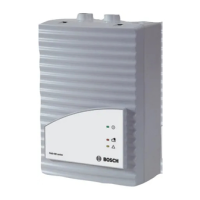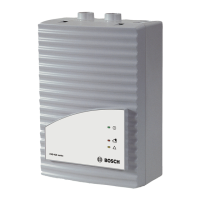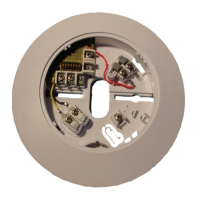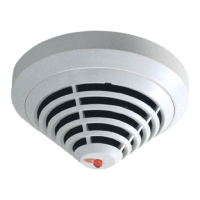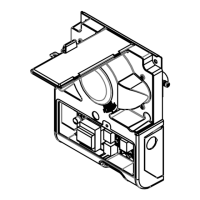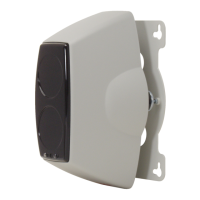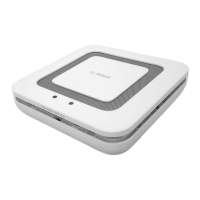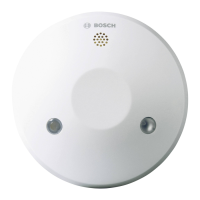Do you have a question about the Bosch FAS-420-TM and is the answer not in the manual?
Describes the smoke aspiration systems and the FAS-420-TM series.
Explains symbols used for safety warnings and precautions.
States warranty conditions and liability exclusions.
States that copyright remains with Bosch.
Instructions for disposing of electrical and electronic devices.
Details the FAS-420-TM series aspirating smoke detectors and their features.
Explains the versatility and suitable environments for FAS-420-TM detectors.
Describes the main components of the smoke aspiration system.
Explains the detection, LOGIC×SENS, and fire source identification functions.
Lists and illustrates the components of the FAS-420-TM series detectors.
Illustrates and lists various pipe system components.
Lists basic devices, accessories, and pipe system components with order numbers.
Provides electrical and mechanical specifications for the detectors.
Outlines planning regulations, EN 54-20, and VdS guidelines.
Covers symmetrical/asymmetrical structures and pipe diameter.
Explains airflow monitoring requirements and sensitivity adaptation.
Classifies sensitivity levels and their application examples.
Lists limiting values for pipe systems and openings.
Determines appropriate pipe system construction and accessories.
Outlines parameters and opening diameters for single-hole monitoring.
Details simplified planning for equipment protection in small areas.
Discusses planning for air-conditioning ducts and flow speeds.
Explains power supply requirements and current calculation formulas.
General installation regulations and precautions for the detector.
Explains how to set the detector address using DIP switches.
Details how to install the detector unit, including orientation and mounting.
Guides on preparing and making electrical connections to the unit.
Explains how to use diagnostic software for data logging and tests.
Explains how temperature affects pipe length and calculation.
Guides on selecting and positioning air sampling openings.
Provides steps for installing ceiling lead-throughs.
Discusses positioning of sampling openings based on exhaust speed.
Guides on installing the air filter box.
Details how to feed the air-return pipe into the unit.
Explains the use and connection of a three-way tap for blowing out.
Describes the standard installation of a water separator.
Explains the use of a test adapter for pipe system testing.
Steps for preparing commissioning, including checking settings and tests.
Details the process of inserting and initializing the detector module.
Explains automatic and manual calibration of the airflow sensor.
Verifies detector module function and alarm signal transmission.
Procedures for checking malfunction signal transmission.
Steps to check pipe breakage and obstruction detection.
Guides on performing functional tests of airflow sensors.
Steps to commission fire source identification using diagnostic software.
Guidelines for performing a visual inspection of the system.
Procedures for checking the detector module and alarm transfer.
Instructions for checking the pipe system for obstructions and cleaning.
Step-by-step guide for replacing the detector module.
Instructions for removing and replacing air filter inserts.
Guides on changing filter inserts in the filterbox.
Details the procedure for blowing out the pipe system.
Explains how to check the airflow sensor value and calibration.
Instructions for testing fire source identification using diagnostic software.
Refers to checking airflow monitoring.
Refers to checking malfunction transmission.
Outlines recommended maintenance and inspection intervals.
Lists DIP switch settings for various detector addresses.
Provides planning tables for systems without air filters and other accessories.
Provides planning tables for systems with air filters.
Provides a template for logging test results during commissioning.
| Brand | Bosch |
|---|---|
| Model | FAS-420-TM |
| Category | Smoke Alarm |
| Language | English |


